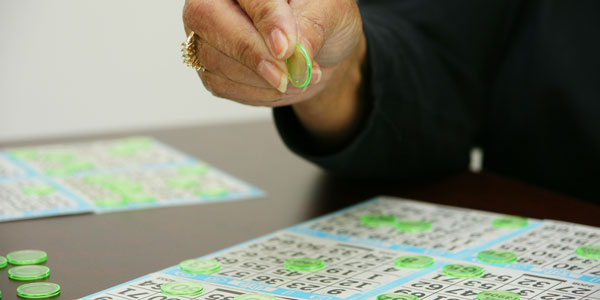Advertisement
Bingo Helps Those with Visual Perception Problems
Bingo! Researchers have discovered that the popular game can help people with cognitive difficulties and visual perception problems. Invented in the 1500s in Italy, the game formerly known as beano (when beans were used for markers in the pre-dauber days), is apparently good for our brains. Bingo is a regular social activity in nursing homes, … Continued

Bingo! Researchers have discovered that the popular game can help people with cognitive difficulties and visual perception problems.
Invented in the 1500s in Italy, the game formerly known as beano (when beans were used for markers in the pre-dauber days), is apparently good for our brains. Bingo is a regular social activity in nursing homes, care facilities, senior centres, and bingo halls around the world.
Researchers from Case Western Reserve University, Boston University, and Bridgewater State University studied whether high-contrast, large bingo cards could increase thinking and playing skills for people with Alzheimer’s disease and Parkinson’s disease.
Perceptual problems
As we age, we lose our ability to perceive contrasts. For those with dementia, this problem is exacerbated.
Study participants used computer generated bingo cards that could be adjusted for brightness, size, and contrast, allowing the researchers to compare the performance of the different age and health groups studied.
They discovered that people with mild dementia could play bingo at the same level as healthy players when the size and contrast of the cards were adjusted.
Boosting contrast
This contrast boosting technique is called Externally Supported Performance Intervention (ESPI). By boosting contrast, people with dementia and other visual perception problems can live independently longer. When a black sofa is put in a white room, for example, it allows people with visual perception problems to move about more easily.
Studies have shown that people with dementia eat more when they use a white plate on a dark tablecloth or eat food that is contrasted by the colour of the plate.
As a social activity and a brain stimulator, everyone’s a winner when playing bingo.
Fun bingo facts
- women named Margaret win at bingo more often than women with any other name
- 30 percent of bingo players are 35 years old or younger
- Americans spend $90 million a week on bingo





